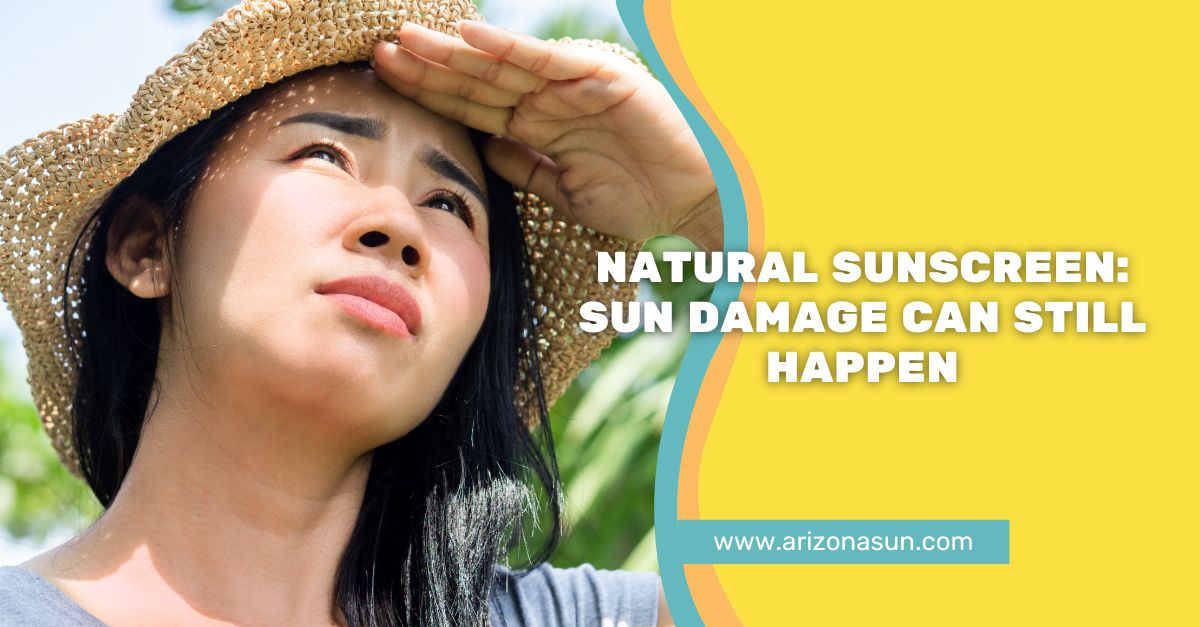
Ever wonder why some people tan so easy while others burn to a crisp after a short time in the sun? The answer lies in your skin’s melanin level. The more melanin a person has, the darker their skin, and the less likely they will burn.
That’s because melanin is a natural sunscreen. However, you still need a sunscreen product, so don’t disregard the importance of sun protection. Prolonged sun exposure without sunscreen increases your risk of cancer or premature aging. It doesn’t matter the skin tone - you can still get wrinkles or lesions. Therefore, SPF (sun protection factor) is an important consideration.
What Is Melanin and How Does It Protect Skin?
Your skin produces a pigment called melanin that helps protect you from the sun's UV rays. Therefore, melanin is what tans the skin and helps prevent sunburns. But melanin isn't foolproof, and sunscreen is still important for skin health.
Melanin acts as a natural sunscreen by absorbing and scattering UV radiation before it can damage the deeper skin layers. When your skin is exposed to the sun, melanin production increases, causing your skin to darken or tan. This darkening is your body's attempt to shield itself from too much sun exposure. You’ll still tan or burn regardless of the skin’s color or tone. It’s just easier to burn when you have fair skin.
Again, melanin only provides so much protection on its own. Prolonged sun exposure can still lead to skin damage in the form of premature aging, wrinkles, age spots, and skin cancer. Regardless of the skin tone, regular use of broad-spectrum sunscreen with an SPF 30 or higher is recommended to protect against both UVA and UVB rays when outside.
UVA rays penetrate deep into the skin and are responsible for the signs of aging. UVB rays, on the other hand, are the primary cause of sunburns and skin cancer. Without sunscreen, just 15-30 minutes of sun exposure a few times a week is enough to cause skin damage over time.
While melanin does help prevent sunburn, again, don't rely on it alone. Combine your natural protection with daily sunscreen use, especially when outside for long periods. Limit the time you spend in the sun during the middle of the day when the sun’s UV rays are most intense.
And be sure to examine your skin regularly for any new or changing moles or lesions. See a dermatologist right away if you notice anything suspicious.
Why You Should Still Wear Sunscreen if You Have More Melanin
Again, having more melanin in your skin means you're less likely to burn in the sun. But you still need to protect yourself and here’s why:
Melanin acts as a natural sunscreen, but isn't foolproof
Melanin, the pigment that gives your skin its color, absorbs about 30-45% of UVB rays and less than 15% of UVA rays. That leaves a lot of UV exposure that can cause damage.
UV damage accumulates over time
Repeated sun exposure over the years causes wrinkles, age spots, and increases your risk of skin cancer, especially melanoma which is the most dangerous type. UV damage is cumulative, so every bit of unprotected sun exposure adds up.
Darker skin can still burn
Although less likely, people with medium to dark skin tones can still get sunburns, especially on more sensitive areas like the lips, scalp, and shoulders. A sunburn is a clear sign of UV damage, so you want to avoid getting burned, if possible.
Sun protection has benefits beyond skin health
Wearing sunscreen, sunglasses, and protective clothing helps ensure you get to enjoy all the benefits of being outside without the risks. You'll feel more comfortable being active and spending time outdoors knowing you're shielded from the sun's harmful effects.
In summary, more melanin is not a pass to skip the sunscreen. Be sure to wear broad-spectrum SPF 30 (or higher) sunscreen, limit time in the midday sun, and practice other sun safety habits each and every day to keep your skin healthy for life.
Finding the Right Sunscreen for Your Skin Tone and Needs
Below are some tips for finding a sunscreen that will suit your needs while protecting your skin.
SPF 30 or Higher
No matter your skin tone, use a broad-spectrum sunscreen with an SPF of at least 30 to protect against both UVA and UVB rays. An SPF 30 blocks about 97% of the sun’s UVB rays. Anything higher provides marginally better protection. Focus instead on reapplying your sunscreen every two hours.
Mineral or Chemical
Mineral sunscreens with ingredients like zinc oxide and titanium dioxide sit on top of the skin and reflect UV light. Chemical sunscreens are absorbed into the skin and absorb UV light.
Water Resistant
If you plan to swim or sweat, a sunscreen is typically water resistant for up to 80 minutes. Reapply after swimming, toweling off or sweating heavily.
Antioxidants
Sunscreens with antioxidants like vitamin E, can help prevent damage from free radicals caused by sun exposure. Antioxidants are especially beneficial for skin types prone to an uneven skin tone, age spots or melasma.
The key is to find a sunscreen tailored to your skin that you will use consistently and generously. Daily sunscreen use, especially on sensitive areas like your face, neck and hands, is the best way to maintain your skin health and prevent signs of aging no matter how much natural sun protection you have. Consistency is the key!
Where to Get Your Sun Profection Now
ArizonaSun Sunscreen SPF 15 has all the great ingredients you need to protect you from sun damage over time. Not only does it include the needed sunscreen, it boasts ingredients like tocopheryl acetate (vitamin E), retinyl palmitate (vitamin A), jojoba seed extract, and aloe vera leaf juice. Check out the ArizonaSun website for all the details now.

